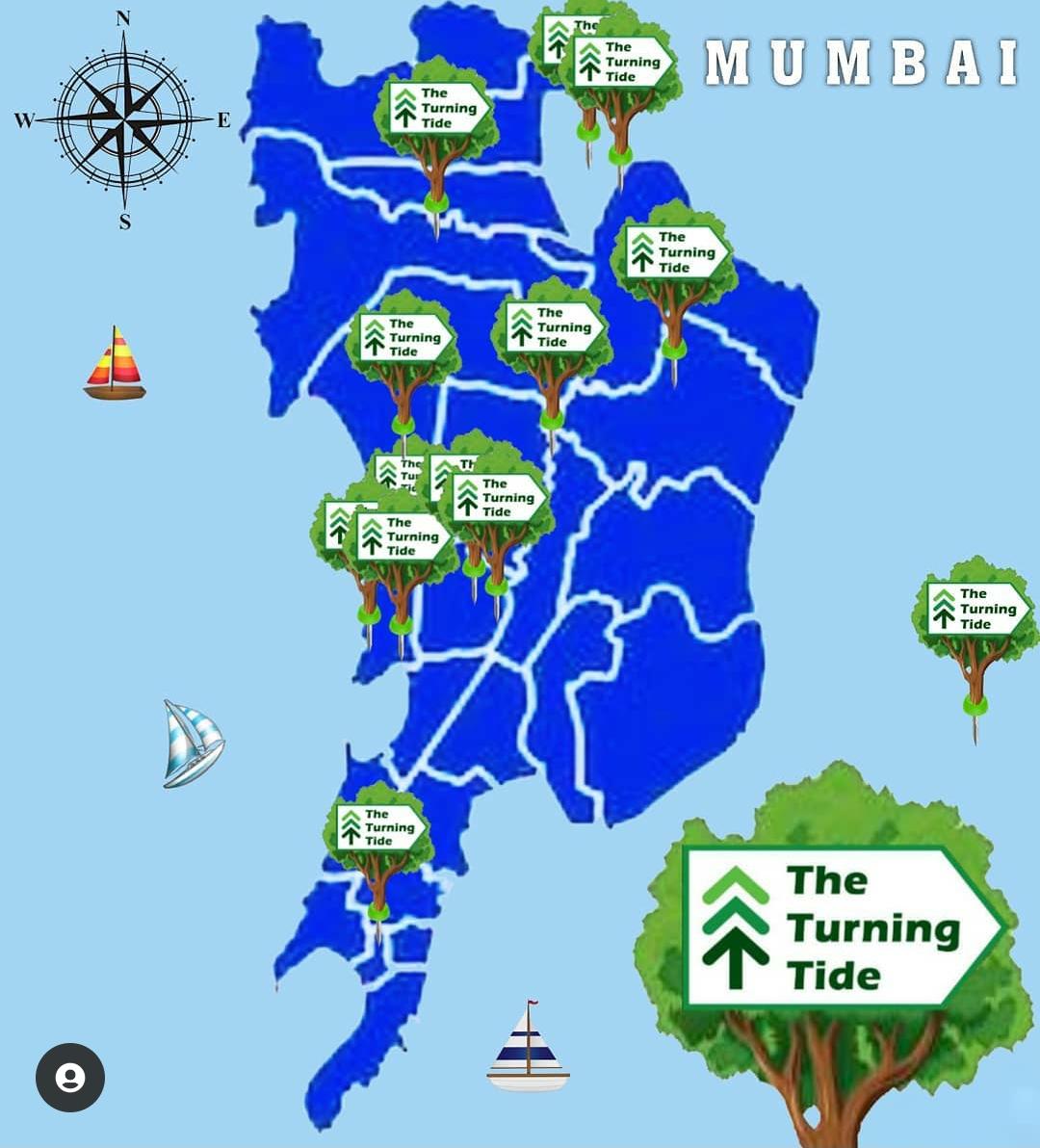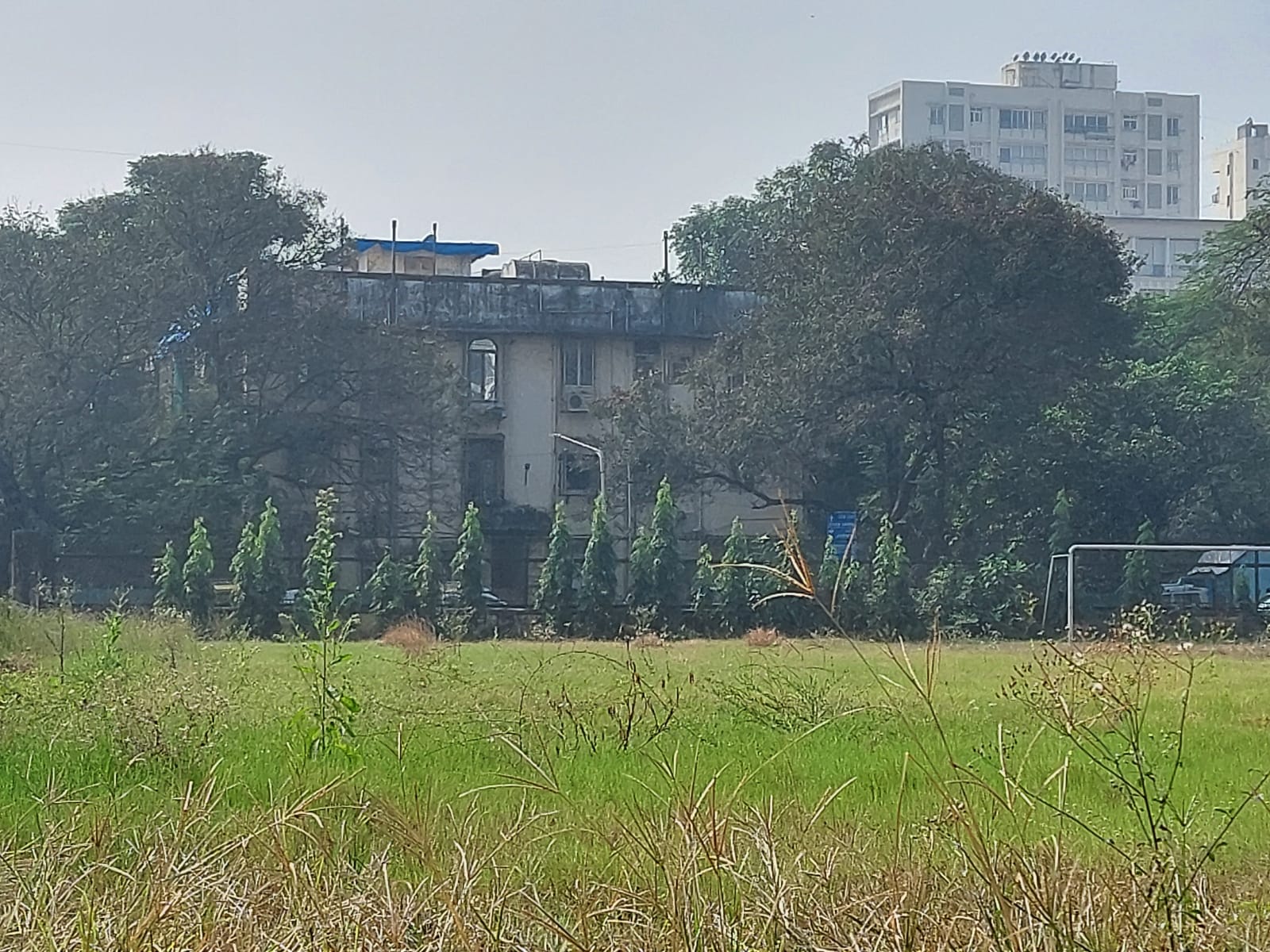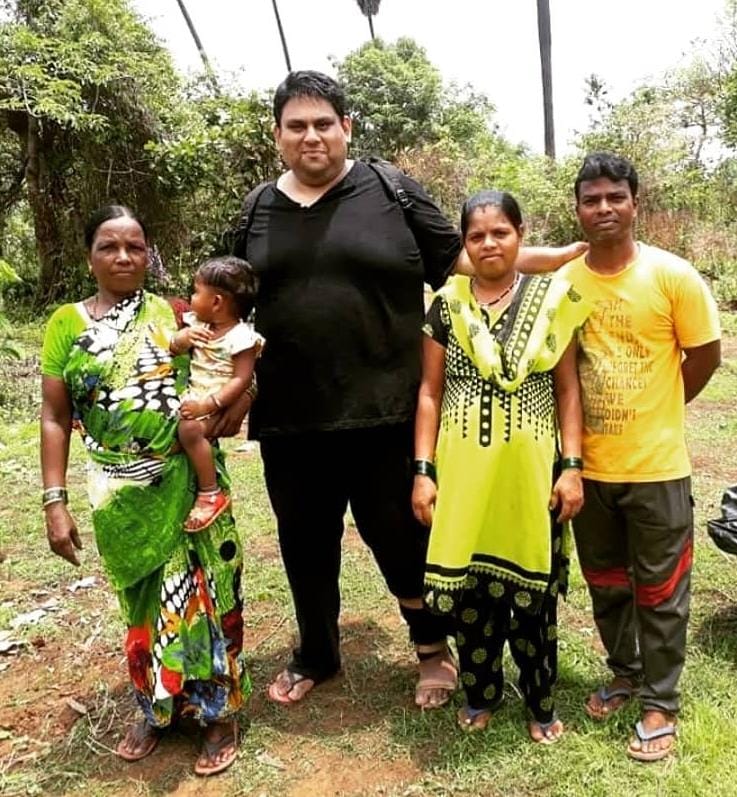In a limited space of just 13 feet by 145 feet, a forest of mangoes, coconut, papayas, guavas, pomegranates, bananas, Indian jujubes and more are thriving in the city of Mumbai.
This is just one of the 10 such ‘food forests’ planted across the city. Here, along with the greenery you see monkeys, squirrels, birds and bees that come to feed on the fruits.
Planting diverse edible plants in limited spaces is an art that George Remedios has perfected over the years. “Food forests have multiple layers and take years to create,” he says.
The ‘layers’ he refers to consist of tall trees, shrubs, groundcover and root layers. “Along with tree saplings, we also plant brinjal, tomato and okra seedlings that form the shrub and bush layer. Then comes the grass and root layer. Eventually, as the trees grow, we will plant creeping varieties like pepper and other plants, along with inoculating a fungi layer, wherein we start planting mushroom plants as well,” says the 36-year-old.
He admits the food forests are a work in progress. But in six years, his not-for-profit organisation called ‘Turning Tide’ has planted 1,000 trees, 80 per cent of which still survive.
“To find spaces to plant these forests is very difficult. We could keep planting trees for the sake of it or we could plant a few and see that they flourish. I don’t abandon the plantations and don’t believe in these gimmicks like ‘selfie with saplings’,” he says.
This one-man army has tied up with institutions like orphanages and old age homes to care for the saplings after they grow into trees. George also ensures he does regular follow ups for the growth and handling of the trees.
“We have tied up with around four orphanages, a few schools in Mumbai and with tribal communities for these food forests. The idea is to get kids interested in the concept of food forests,” he says.
One of their initial forests was in an SRA (slum rehabilitation authority) project in Vakola, where in a very limited space currently stands 20-foot-tall coconut trees, papayas, guava, pomegranates, bananas, Indian jujubes, two or three types of mango trees and drumsticks. “Recently, we have also planted breadfruit trees in this space,” George says.
Speaking about other benefits of the trees, he says, “A couple of years ago when these trees were much shorter, we did a temperature test in January. The temperature outside the forest in the sun and inside the forest showed a 5°C difference,” adding that 90 per cent of the moisture the trees absorb from the soil are released into the air.
Today, these forests can be found in Kalina, Powai, Bandra, Byculla, South Mumbai, Panvel and in Yeoor Hills, Thane.
“We plant up to 50 trees in each food forest,” says George.

Food forests are great not just for greening the place but also managing waste that would have ended up in landfills. Turning Tide uses mulching techniques and biomass compost to nurture the trees.
But how did this movement begin?
To Turn The Tide

George always had an affinity for nature from the time he gardened money plants with his grandmother. When he was 9, the Christmas tree they had grown indoors was outgrowing their living room and so little George with help from his mother planted the tree in the centre of their garden.
He recalls decorating the tree every Christmas with the kids from the building. The tree grew to about 30 feet tall until last year when it was brutally cut down as their building went for redevelopment.
“My heart broke to see that. This was at a time when my father was in hospital and suffering multiple organ failures and my mother was diagnosed with cancer. It felt as though I had lost my home, my dad and everything that I held close to me,” says George.
He adds that along with his mother’s health, he heard of his neighbours in Mumbai suffering from lung cancer because of the pollution. This is what inspired him to take matters into his own hands.
After his father’s death in 2020, George and his mother decided to do something in his memory. The little money that they had saved up was used to register Turning Tide as a Section 88 company, which is a not-for-profit organisation.
George decided to give up his ad agency job and take up Turning Tide initiatives full time.
With his building under redevelopment, he temporarily relocated to Pune and began planting food forests in an old age home, with the help of farmers in the outskirts of the city.

Today, they plant not just food forests but also hold other plantation drives like the one in a football ground in Santacruz where the ball used to fly out due to the lack of a barricade.
“Four years ago, we planted 70 Ashoka trees, out of which 36 are currently surviving. We had volunteers from all over the city for this drive. Today, we see so many different birds that feed on the fruit of these trees,” he adds.
The Hills of Yeoor

A food forest costs anywhere between Rs 15,000 to Rs 30,000, says George, who also relies on crowdfunding for his initiatives.
The food forests he plants today benefit the institutions that house the trees.
“Custard apples, pomegranates, chikoos and papayas planted at the orphanages are highly beneficial to the kids there. Similarly, in the tribal areas, we encourage them to earn from the harvest of these food forests,” he says, adding that the saplings are sourced from different nurseries.
“About two years ago, I was part of a group of environmentalists who were fighting for Aarey. Each one of us were in favour of the metro but not of the car shed. It was here that I had learnt about the humble tribals of the Yeoor hills that have always been marginalised. They had a bit of land just bordering the forest land in Thane where we could plant food forests,” says George.
While the tribals only wanted to grow mango saplings, we explained how planting food forests would increase their chances of earning from the harvest. “With climate change rearing its ugly head, it is risky to bank on just one type of fruit to earn from,” he says and adds, “We planted more than a 100 saplings of mangoes, limes, avocados, chikoos, guavas, pomegranates and lemons here.”
In November 2019, musician Anand Bhaskar shot a video which featured the food forests in the hills of Yeoor.
Today, Turning Tide is also giving a push to rooftop gardens in the city, where under his guidance people grow lemons, fig trees, lime saplings, kale, basil, various types of peppers, beetroots and radishes. “It would be helpful if we could produce a small fraction of the food we consume,” he says.
Companies contact George for their corporate Social Responsibility (CSR) initiatives and fund tree plantation drives that also see up to 70 volunteers from National Social Service (NSS) programmes by colleges.
The Turning Tide has a WhatsApp group to alert volunteers of the plantation drives. If you would like to join, please contact George on 9820431690.
(Edited by Vinayak Hegde)
No comments:
Post a Comment